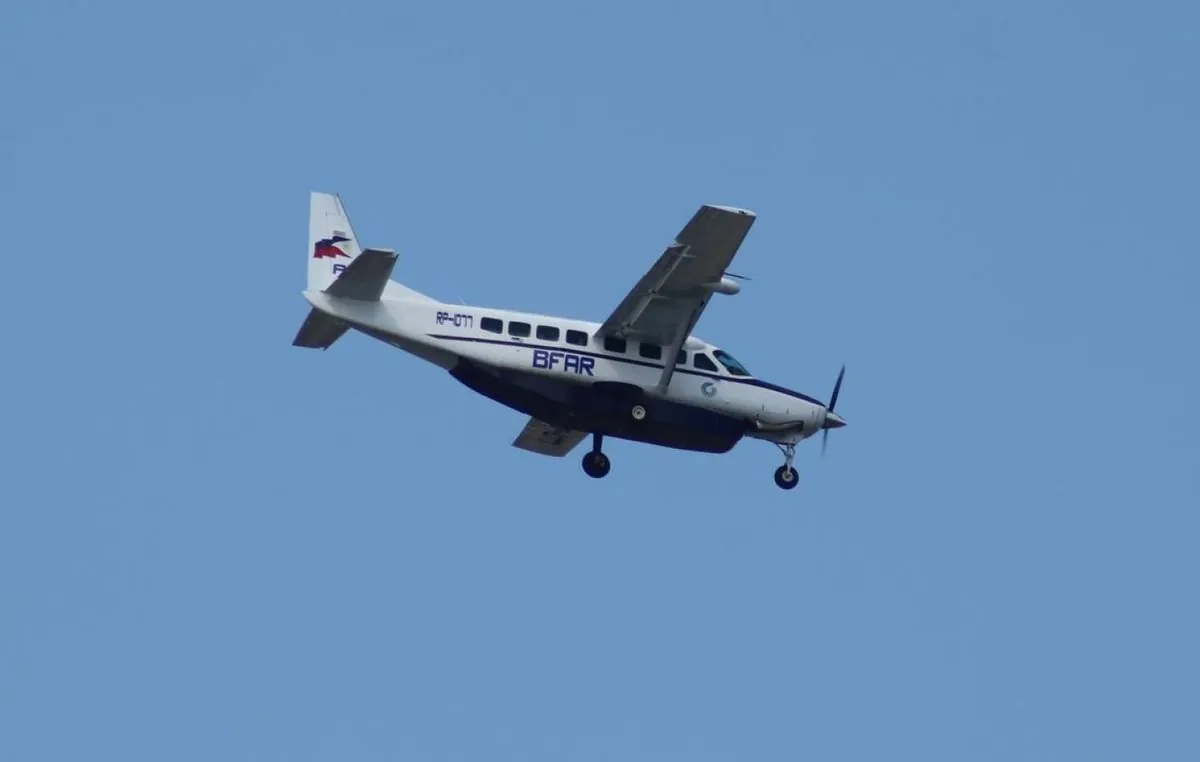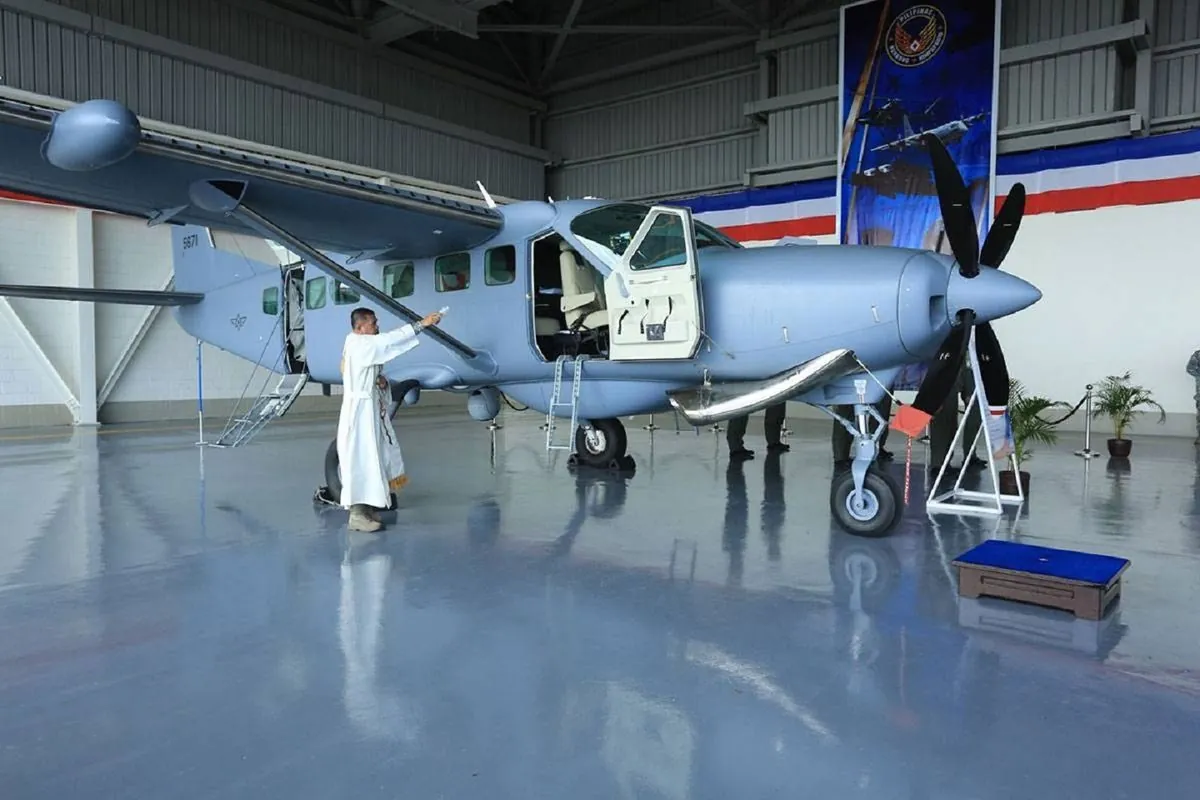Philippine Plane Faces Chinese Flares in South China Sea Patrol
A Philippine fisheries plane encountered flares from a Chinese base during a routine patrol. This incident adds to the ongoing territorial disputes in the South China Sea, highlighting escalating tensions.

In a recent development highlighting the ongoing tensions in the South China Sea, a Philippine fisheries bureau plane faced a threatening situation during a routine patrol. The incident, which occurred on August 22, 2024, involved flares being fired from a Chinese island base near Subi Reef, a fishing atoll that China has transformed into a militarized outpost.
The South China Sea, known for being one of the world's busiest trade routes, has been a hotspot for territorial disputes between various nations, particularly China and the Philippines. This latest confrontation underscores the escalating tensions that have spread from the disputed waters to the airspace above.
The Philippine Bureau of Fisheries and Aquatic Resources, which operates Cessna 208B Grand Caravan planes for its patrols, was conducting a routine mission to monitor for potential poachers within the Philippines' internationally recognized exclusive economic zone. The exact details of the flare incident, including the distance between the flares and the Philippine plane, remain undisclosed.

This event follows a series of recent confrontations between Chinese and Philippine forces in the region. Just a week earlier, on August 17, 2024, the same Philippine fisheries plane reportedly experienced harassment from a Chinese air force fighter jet near the disputed Scarborough Shoal. According to Philippine officials, the Chinese jet engaged in dangerous maneuvers, deploying flares multiple times at an alarmingly close distance of approximately 15 meters.
The Philippine government has strongly condemned these actions, stating that they "jeopardized the safety of the personnel onboard the BFAR aircraft" and were unprovoked. In response, Manila has called on Beijing to "immediately cease all provocative and dangerous actions" that threaten the safety of Philippine vessels and aircraft operating within Philippine territory and exclusive economic zone.
"We firmly reiterate our call on the government of the People's Republic of China to immediately cease all provocative and dangerous actions that threaten the safety of Philippine vessels and aircraft engaged in legitimate and regular activities within Philippine territory and exclusive economic zone. Such actions undermine regional peace and security and further erode the image of the PRC with the international community."
The situation in the South China Sea is complex, with China claiming almost the entire area through its "nine-dash line" policy. However, in 2016, the Permanent Court of Arbitration ruled that China's claims have no legal basis under international law. Despite this ruling, tensions have continued to escalate, with 2023 marking a significant increase in hostilities between Beijing and Manila.
These incidents are not isolated to Philippine-Chinese interactions. The United States, Australia, and Canada have reported similar actions by Chinese air force aircraft in the region. These nations have deployed forces to promote freedom of navigation and overflight, actions that China views as a threat to regional security.
The South China Sea's importance extends beyond its role as a major trade route. The area is rich in natural resources, including oil and gas reserves, and is home to numerous coral reefs and diverse marine ecosystems. The ongoing disputes have raised concerns about the environmental impact and the potential for conflict in this strategically significant region.
As tensions continue to simmer, the international community watches closely. The Association of Southeast Asian Nations (ASEAN) has been working on a Code of Conduct for the South China Sea, aiming to establish guidelines for peaceful resolution of disputes. However, progress has been slow, and incidents like these recent confrontations highlight the urgent need for a diplomatic solution to ensure regional stability and security.


































